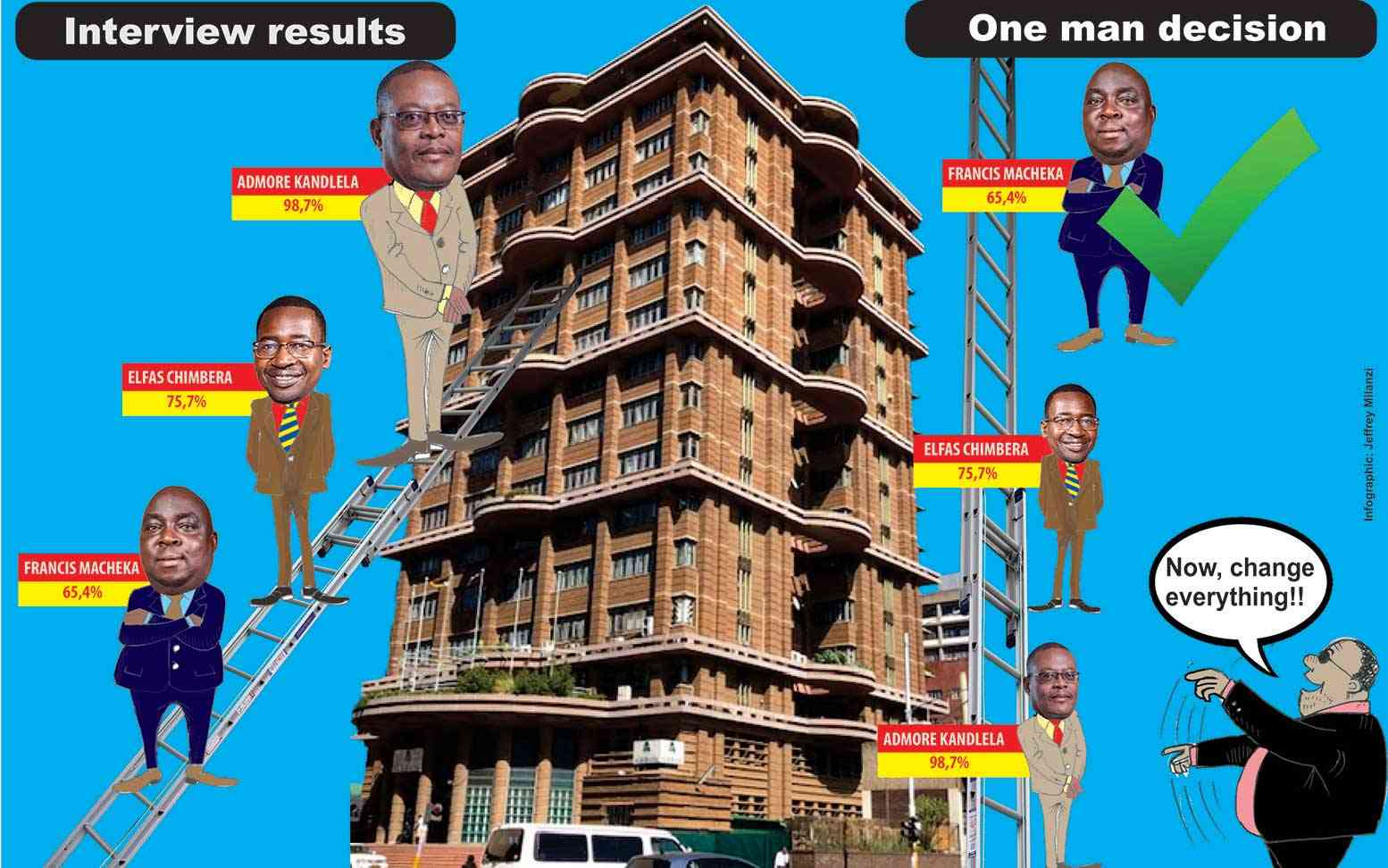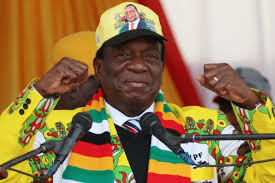
FRESH details of top-level divisions threatening the state-controlled banking group, AFC Holdings (AFCH), emerged this week, with confidential documents exposing how group chief executive officer Francis Macheka was irregularly tapped to run the operation.
AFCH entered Zimbabwe’s banking landscape about a year ago, following the transformation of state-run agricultural lender, Agribank, into a broad financial services outfit that now superintends over AFC Land and Development Bank, AFC Commercial Bank, AFC Leasing Company and AFC Insurance Company.
Government controls 100% shareholding in the business through the ministries of Finance and Agriculture, which each hold a 50% stake.
Last week, the Zimbabwe Independent reported that the Reserve Bank of Zimbabwe (RBZ) had red-flagged infighting at the haemorrhaging business, saying it could destabilise its flagship AFC Bank, with a contagion effect likely to hit all banks.
As AFCH scrambled to address fault lines exposed by the RBZ following an inspection in October, sources said the centre of damaging splits at the group revolved around concerns over unilateral decisions which went against the board’s human resources (HR) committee’s selection process which saw the dramatic rise to the top of Macheka.
The Independent can exclusively report that following strenuous efforts to pick the best, AFCH HR committee recommended former POSB Bank CEO Admore Kandlela to head the firm that kicked off on shaky ground in 2021, with little capital and state undertakings to parcel out substantial pieces of prime land to bolster its asset base.
AFCH’s HR committee worked with recruitment agency, Proserve, for the high-profile mandate, according to internal reports.
The Independent was told that Kandlela, a top banker who left POSB last year after 19 years, scored highest marks at 98,7%. AFCH finance director Alfas Chimbera was second best with 75,7%. Macheka, an agriculturalist, fell 33,3 percentage points behind Kandlela, with a 65,4% score.
- Govt issues $24 billion Covid-19 guarantees
- Zim banks optimistic as capital deadline approaches
- Govt issues $24 billion Covid-19 guarantees
- Zim banks optimistic as capital deadline approaches
Keep Reading
Chimbera acted as Agribank CEO after long-saving boss, Sam Malaba, left about five years ago. He proceeded to act as AFC Bank boss at its formation before the big shake-up of the entire operation in 2021.
Sources said following the interviews, the HR committee’s collective decision was that Kandlela be immediately notified to take up the post.
“The HR committee recommends that an offer be made to each of the named number one candidate for the respective roles,” the committee recommended. “Where the top performing candidate is unable to take up the job, the offer be made to the number two candidate. Where the number two candidate is unable, the offer can be made to the number three candidate.”
But sources close to board level power struggles at the firm said they were shocked when an announcement was made that Macheka would be CEO.
“The number one on CEOs list indicated that he was available and accepted the offer,” a source at the financial institution said. “However, number three was appointed contrary to the recommendations of the board and in violation of the Public Entities Corporate Governance Act: Part IV; Section 17, which deals with the appointment of CEOs,” the source alleges.
“The appointment was done solely by one person without the knowledge of other board members. There were no resolutions or minutes.
“He wrote to the then minister (of Agriculture), and the minister appointed him in violation of the Act, hence the calling of the minister, board chairperson and board HR committee to parliament by the Portfolio Committee on Agriculture. The HR committee picked Kandlela because he turned around POSB, and they wanted him to do the same at AFC.”
AFCH’s troubles have been compounded by state interference, according to the RBZ, which slammed the banking group with a corrective order on March 8.
The sources allege that AFCH chairperson James Matiza ignored his board’s HR committee’s selection and recommended Macheka to the government.
A Ministry of Finance and Economic Development spokesperson referred all questions to the AFCH board .
Matiza, when contacted for comment, promised to call back.
Macheka said he may have been picked because he was the only executive in the top three with an agricultural background and qualifications.
“I am not sure about this, but I think it was because I was the only agriculturalist in the top three,” he said.
Efforts to get a comment from permanent secretary in the Agriculture ministry John Basera were futile as calls to his mobile phone went unanswered.
The RBZ exposed how disagreements between AFC Bank’s directors and the holding company had frustrated growth, with four AFC Bank non-executive directors being sacked by the Ministry of Agriculture without consulting the Finance ministry.
But the central bank specifically zeroed in on the potentially dire sector-wide implications of AFCH’s destabilisation, and proffered insights into what the endgame could be.
Concerns over the banking sector crisis have been raised by central bank chiefs worldwide since the collapse of US-based Silicon Valley Bank last month, which saw policymakers scrambling to stem the deadly contagion.
“These issues pose a threat to the stability of the group (AFCH) and the financial system at large,” the RBZ said in its nine-page corrective order.






